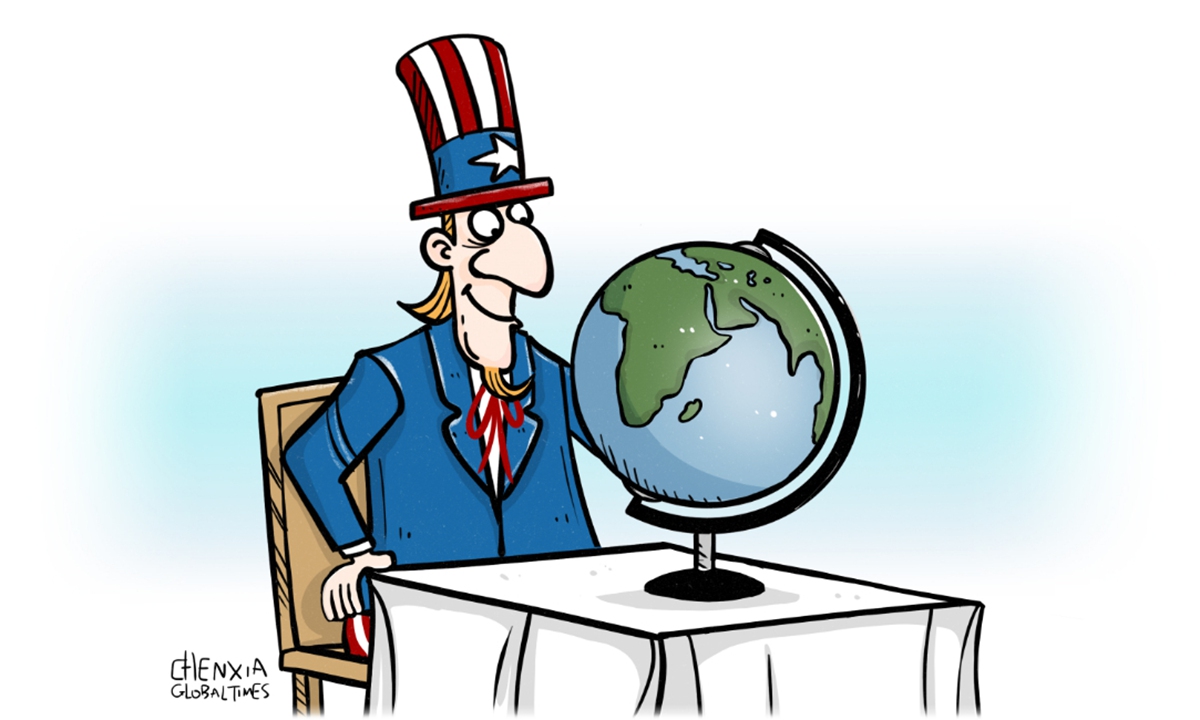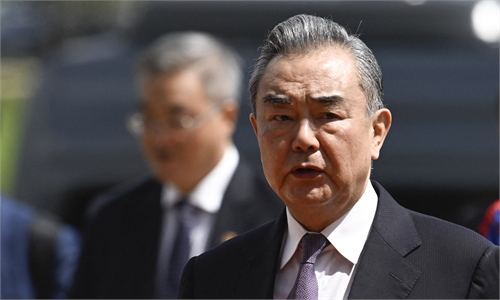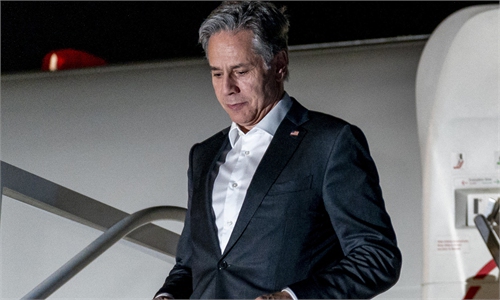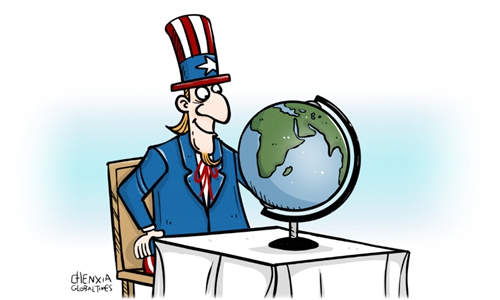
Illustration: Chen Xia/GT
US Secretary of State Antony Blinken embarked on a week-long trip to the west coast of Africa on January 22, while just four days prior, Chinese Foreign Minister Wang Yi concluded his annual New Year's first visit to Africa.It is worth noting the self-contradicting attitude of the West, represented by the US, toward China-Africa relations. On one hand, the Western media rampantly hypes a cooling of Africa's interest in China, while on the other hand, American politicians closely follow China's footsteps in Africa.
However, the intense media hype and policy pressure from the US can be seen as a reflection of its competitive drive to counter China's cooperation with African countries. The US' Africa policy, which is primarily focused on competing with China, raises concerns about the questionable relationship between the US and Africa.
Africa still cannot become a strategic priority for the US. In 2023, the US launched a total of 17 cabinet-level official visits to Africa, reflecting its continued attention to the continent since the end of the US-Africa Leaders Summit in 2022.
US State Department spokesperson Matthew Miller said Blinken's six-day trip will highlight how the US has accelerated the US-Africa partnership since the summit, including in areas such as climate, food and health security, according to US media.
Although the Biden administration has sought to set a positive tone, it is no secret that Africa is not a strategic priority for the US. Due to geopolitical and business reasons, African issues are difficult to gain favor from the US. This is also an important reason why Biden was unable to fulfill his promise to visit the African continent in 2023.
The core attention of the US is to closely anchoring China's moves in Africa. Just four days after the Chinese Foreign Minister's visit to West Africa, Blinken arrived. Despite repeated emphasis by Molly Phee, the US State Department's assistant secretary of state for African affairs, that "if China didn't exist, we would be fully engaged in Africa," few believe it.
Political and academic circles in the US have long reached a conclusion that China is the biggest and most dangerous competitor of the US in Africa. They believed that over the past 20 years, China's influence in Africa has been continuously growing, and that the US must take action to contain it.
"The carrot and stick approach" has been a consistent tactic used by the US toward developing countries. However, with the steady progress of China-Africa cooperation, Africa is gradually breaking free from its "dependent" status. With the collective rise of the Global South, African countries are diversifying their choices for development financing support, and their bargaining power is also increasing. Faced with the threat from the US, African countries are unlikely to easily succumb to these tactics.
For Africa, how to promote post-pandemic recovery and development is a political test faced by every African leader. The key to successfully addressing development challenges lies in building sustainable and mutually beneficial development partnerships. While the US can provide temporary aid, unlocking development bottlenecks requires sincere and long-term planning, which is why the US finds it difficult to win over Africa.
Overall, it is clear that Blinken's visit to Africa is aimed at countering China's influence in the region. The US finds it difficult to escape its competitive-driven strategy in Africa, which is well-known to African countries. With the rise of the Global South, Africa's strategic resilience is also growing. The political intimidation and economic incentives of the US are losing their effectiveness.
The author is professor with School of International Relations and Diplomacy, Beijing Foreign Studies University. bizopinion@globaltimes.com.cn



